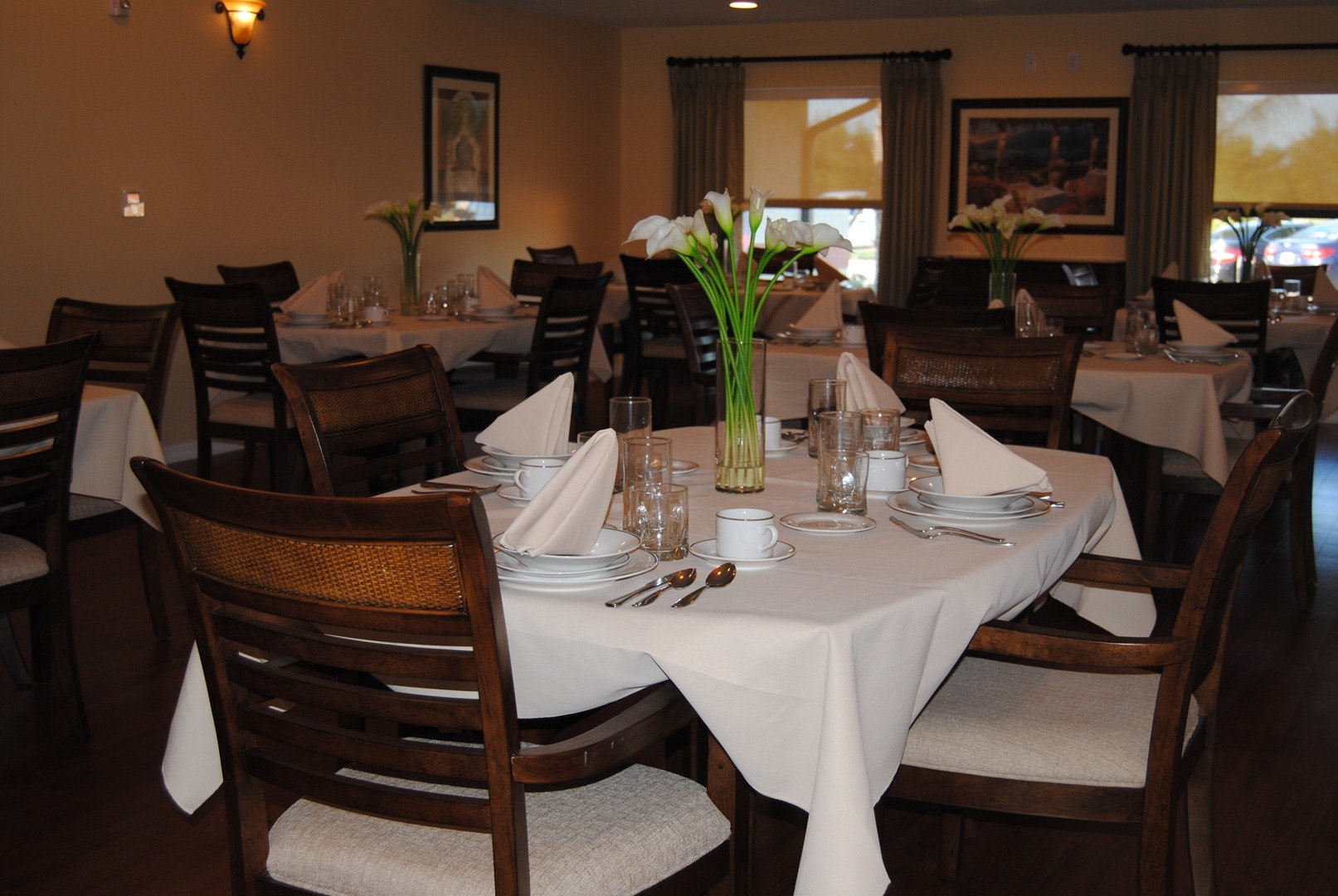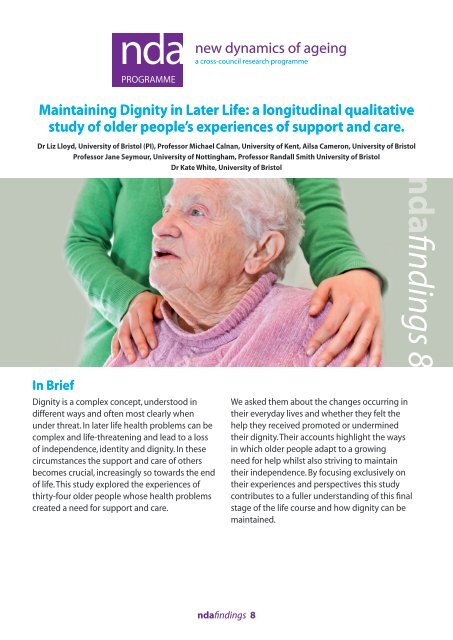Mealtime is an essential part of our daily routine, but it's also a time that should be filled with respect and dignity. This is especially important in the dining room, where individuals may feel vulnerable or self-conscious. Here are 10 tips to help promote dignity in the dining room and create a more positive dining experience for all. Dignity in the Dining Room: 10 Tips for a More Respectful Mealtime
As we age, our bodies and abilities may change, but our need for dignity remains constant. For seniors, the dining room can be a place where they feel respected and valued, or it can be a source of frustration and embarrassment. By prioritizing dignity in the dining room, we can improve the overall quality of life for our elderly loved ones.The Importance of Dignity in the Dining Room for Seniors
For caregivers, it's important to understand the impact that dignity has on an individual's well-being. Some individuals may need assistance with eating, and it's crucial to approach this task with sensitivity and respect. Allow them to maintain as much independence as possible, and offer assistance only when needed.Maintaining Dignity in the Dining Room: Strategies for Caregivers
Individuals with disabilities may face unique challenges in the dining room, but it's important to remember that everyone deserves to be treated with dignity. Consider their specific needs and make adjustments to the dining room environment to accommodate them. This can include wheelchair-accessible tables, utensils with larger handles, and assistance with cutting food if needed.Creating a Dignified Dining Room Experience for Individuals with Disabilities
In some cases, individuals may exhibit difficult behaviors in the dining room, such as refusing to eat or becoming agitated. It's important for staff and caregivers to remain calm and patient, and to try to understand the root of the behavior. Approaching the situation with empathy and respect can often diffuse the situation and promote a more dignified dining experience.Dignity in the Dining Room: How to Handle Difficult Behaviors
Dementia can make mealtime challenging for both the individual and their caregivers. It's important to create a calm and familiar atmosphere in the dining room, and to understand that individuals with dementia may need extra time and assistance with eating. Encourage independence and allow them to make choices when possible to maintain their sense of dignity.Promoting Dignity in the Dining Room for Individuals with Dementia
In assisted living facilities, the dining room is often the central gathering place for residents. It's essential to create a welcoming and respectful atmosphere in the dining room, as it can greatly impact the social and emotional well-being of residents. Encourage conversation and provide options for residents to customize their meals to their preferences.The Role of Dignity in the Dining Room for Residents in Assisted Living
Nursing homes provide care for individuals with a wide range of needs, including those who may require assistance with eating. It's crucial for staff to approach mealtime with dignity and compassion, allowing residents to maintain as much independence and choice as possible. This can greatly improve their overall satisfaction and well-being in the nursing home environment.Dignity in the Dining Room: A Guide for Nursing Home Staff
Individuals with limited mobility may face challenges in the dining room, such as difficulty reaching food or using utensils. It's important to make accommodations to ensure they can comfortably and easily access their meals. Options may include adjustable tables or providing assistance with cutting or serving food.Maintaining Dignity in the Dining Room for Individuals with Limited Mobility
Dignity in the dining room goes beyond just mealtime. It can greatly impact an individual's overall quality of life. When we respect and value individuals, regardless of their abilities or limitations, we create a more positive and inclusive environment. By prioritizing dignity in the dining room, we can improve the well-being and happiness of all individuals in our care.The Impact of Dignity in the Dining Room on Overall Quality of Life
The Importance of Maintaining Dignity in the Dining Room

Creating an Atmosphere of Elegance and Sophistication
 The dining room is often considered the heart of a home, a place where friends and family gather to share meals and create lasting memories. As such, it is important to cultivate an atmosphere of elegance and sophistication in this space. Not only does it add to the overall aesthetic of the house, but it also sets the tone for the entire dining experience.
Proper Table Setting
One of the key elements in maintaining dignity in the dining room is setting the table properly. This not only includes having the right utensils and dinnerware, but also arranging them in an organized and aesthetically pleasing manner. It is essential to have a clear understanding of the placement of each item, as well as the appropriate utensils for each course. This attention to detail not only adds to the visual appeal of the dining room, but also shows respect for the meal being served.
Attention to Decor
In addition to the table setting, the overall decor of the dining room plays a crucial role in creating a dignified atmosphere. This includes choosing the right color scheme, furniture, and lighting.
Neutral colors
such as white, beige, or grey can add a touch of elegance and sophistication to the room.
Lighting
can also make a big difference, with dimmer lights creating a more intimate and refined ambiance.
The dining room is often considered the heart of a home, a place where friends and family gather to share meals and create lasting memories. As such, it is important to cultivate an atmosphere of elegance and sophistication in this space. Not only does it add to the overall aesthetic of the house, but it also sets the tone for the entire dining experience.
Proper Table Setting
One of the key elements in maintaining dignity in the dining room is setting the table properly. This not only includes having the right utensils and dinnerware, but also arranging them in an organized and aesthetically pleasing manner. It is essential to have a clear understanding of the placement of each item, as well as the appropriate utensils for each course. This attention to detail not only adds to the visual appeal of the dining room, but also shows respect for the meal being served.
Attention to Decor
In addition to the table setting, the overall decor of the dining room plays a crucial role in creating a dignified atmosphere. This includes choosing the right color scheme, furniture, and lighting.
Neutral colors
such as white, beige, or grey can add a touch of elegance and sophistication to the room.
Lighting
can also make a big difference, with dimmer lights creating a more intimate and refined ambiance.
Etiquette and Manners
 Maintaining dignity in the dining room also extends to the behavior and manners of those sitting at the table. This includes using proper etiquette such as waiting for everyone to be served before starting to eat, using utensils correctly, and not talking with your mouth full. These small gestures show respect for the meal, the host, and the other guests, creating a more dignified atmosphere.
Conclusion
In today's fast-paced and informal society, it is easy to neglect the importance of dignity in the dining room. However, by paying attention to details such as table setting, decor, and proper etiquette, you can create an atmosphere of elegance and sophistication that will elevate any dining experience. Remember, the dining room is not just a place to eat, but a space to connect and create lasting memories. Let's strive to keep it dignified.
Maintaining dignity in the dining room also extends to the behavior and manners of those sitting at the table. This includes using proper etiquette such as waiting for everyone to be served before starting to eat, using utensils correctly, and not talking with your mouth full. These small gestures show respect for the meal, the host, and the other guests, creating a more dignified atmosphere.
Conclusion
In today's fast-paced and informal society, it is easy to neglect the importance of dignity in the dining room. However, by paying attention to details such as table setting, decor, and proper etiquette, you can create an atmosphere of elegance and sophistication that will elevate any dining experience. Remember, the dining room is not just a place to eat, but a space to connect and create lasting memories. Let's strive to keep it dignified.





















































































